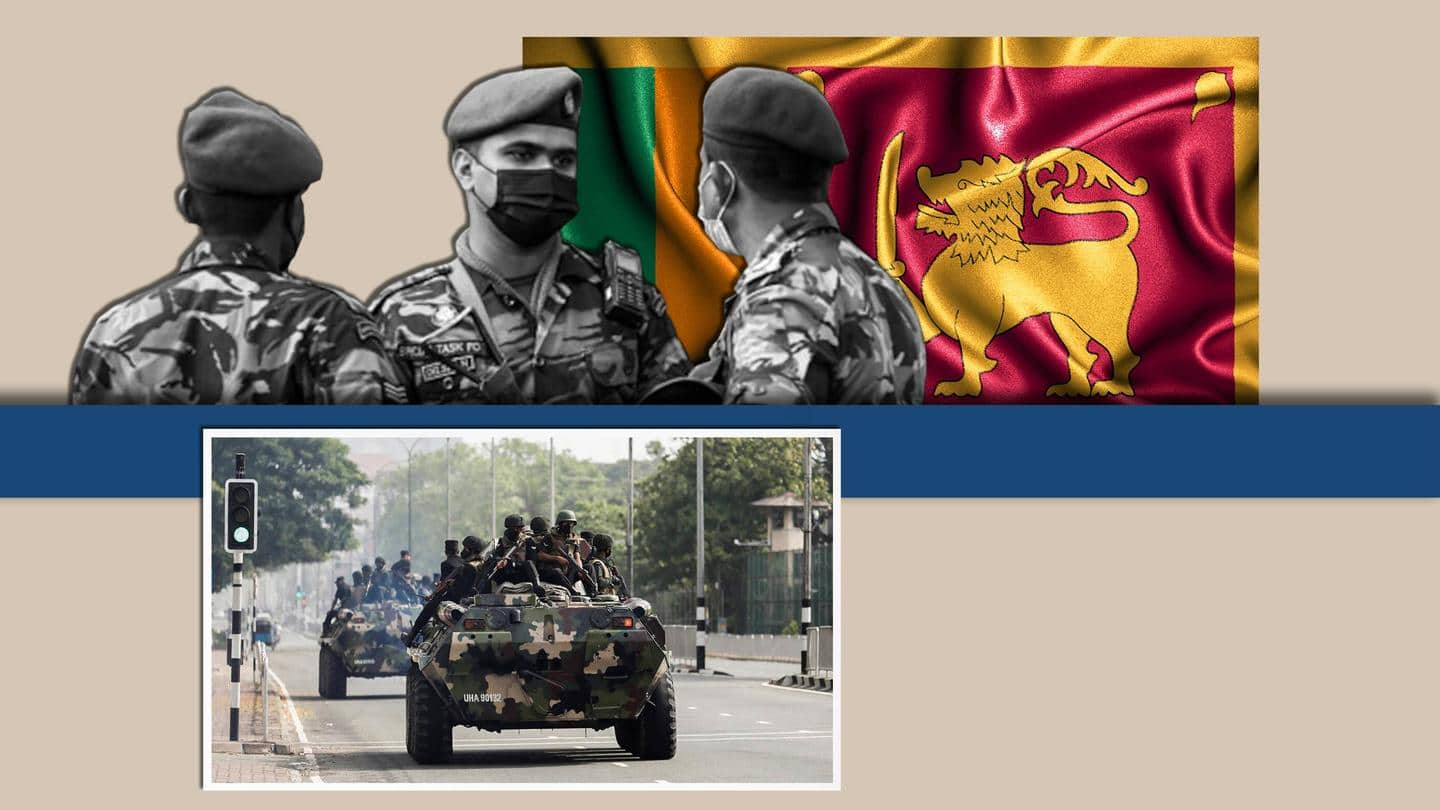
India not sending troops to Sri Lanka: Indian High Commission
What's the story
The Indian High Commission in Colombo on Wednesday firmly denied rumors that New Delhi was sending soldiers to Sri Lanka.
India's statement underlined that it was dedicated to the democratic and economic revival of Sri Lanka.
India's denial came a day after it rejected local social media rumors that former Prime Minister Mahinda Rajapaksa and his family have fled to India as "blatantly false."
Context
Why does this story matter?
The development comes after Rajapaksa announced his resignation on Monday amid massive protests and growing public resentment against the government.
Sri Lanka has been reeling under the worst economic crisis since independence, stemming from a foreign exchange crisis that led to shortages of essential supplies like fuel, food, and medicine.
Protests have been ongoing for days, calling upon the government to find solutions.
Statement
What did the High Commission say?
"The High Commission would like to categorically deny speculative reports in sections of media and social media about #India sending her troops to Sri Lanka. These reports and such views are also not in keeping with the position of the Government of #India," the Indian mission tweeted.
Notably, the whereabouts of Prime Minister Mahinda Rajapaksa have been unknown since his resignation on Monday.
Reaction
What is MEA's take on the issue?
India's Ministry of External Affairs (MEA) spokesperson remarked on Tuesday that India firmly supports Sri Lanka's democracy, stability, and economic recovery.
"India will always be guided by the best interests of the people of Sri Lanka expressed through democratic processes," the MEA spokesperson Arindam Bagchi said in New Delhi.
The statement was later cited by the Indian Mission in Colombo to deny the speculations.
Developments
What happened in Sri Lanka during Monday amid protests?
In the midst of unprecedented economic upheaval, Mahinda Rajapaksa resigned as Prime Minister on Monday.
Authorities imposed a nationwide curfew and deployed the military in the capital after Rajapaksa's supporters assaulted anti-government protestors.
Pro-Rajapaksa politicians were targeted in the aftermath of the incident.
Some protesters also gathered at the Naval base in Trincomalee's eastern port sector, believing Rajapaksa had sought refuge there.
Details
Calls to arrest deposed PM escalate
There has been a growing demand from protesters to arrest Rajapaksa
The protesters accused him of facilitating a mob that went on to assault anti-government protesters asking for the Rajapaksa family, including President Gotabaya Rajapaksa, to quit.
Notably, at least 8 persons have died and over 250 wounded in the violence.
Hundreds of houses belonging to governing party leaders were also set ablaze.
Offer rejected
Offer for interim government rejected by Opposition
To recall, Sri Lanka's main Opposition party—the Samagi Jana Balawegaya (SJB)—on Tuesday refused Gotabaya Rajapaksa's proposal to form an all-party interim government under him.
Instead, the SJB insisted that the president, like his family members, must step down from the post.
However, the state of emergency—which he declared on Friday—reportedly gives him sweeping powers to suspend laws and detain people as well.
Reason
Why is Sri Lanka in an economic crisis?
Sri Lanka's economic crisis is a result of its massive foreign debts, dwindling foreign currency reserves, series of lockdowns, soaring inflation, fuel supply shortage, and devaluation of the currency.
It, however, has its roots in the Lankan government's move to ban imports in March 2020 to save foreign currency for its $51B foreign debt leading to a shortage of essential items and skyrocketing prices.
Solution
What's the next step?
Experts believe that Sri Lanka has to restructure its debt and repay it over a three-year period to deal with the ongoing economic crisis.
This will help it to save US dollars and ease the burden on the citizens experiencing shortages of essential items.
The cash-trapped island nation also sought a loan from the International Monetary Fund (IMF) under the rapid financial instrument window.